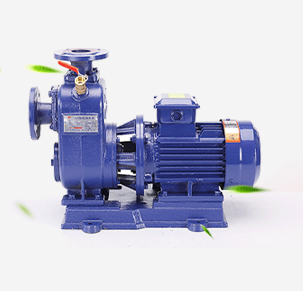Rwandese
- Afrikaans
- Albanian
- Amharic
- Arabic
- Armenian
- Azerbaijani
- Basque
- Belarusian
- Bengali
- Bosnian
- Bulgarian
- Catalan
- Cebuano
- Corsican
- Croatian
- Czech
- Danish
- Dutch
- English
- Esperanto
- Estonian
- Finnish
- French
- Frisian
- Galician
- Georgian
- German
- Greek
- Gujarati
- Haitian Creole
- hausa
- hawaiian
- Hebrew
- Hindi
- Miao
- Hungarian
- Icelandic
- igbo
- Indonesian
- irish
- Italian
- Japanese
- Javanese
- Kannada
- kazakh
- Khmer
- Rwandese
- Korean
- Kurdish
- Kyrgyz
- Lao
- Latin
- Latvian
- Lithuanian
- Luxembourgish
- Macedonian
- Malgashi
- Malay
- Malayalam
- Maltese
- Maori
- Marathi
- Mongolian
- Myanmar
- Nepali
- Norwegian
- Norwegian
- Occitan
- Pashto
- Persian
- Polish
- Portuguese
- Punjabi
- Romanian
- Russian
- Samoan
- Scottish Gaelic
- Serbian
- Sesotho
- Shona
- Sindhi
- Sinhala
- Slovak
- Slovenian
- Somali
- Spanish
- Sundanese
- Swahili
- Swedish
- Tagalog
- Tajik
- Tamil
- Tatar
- Telugu
- Thai
- Turkish
- Turkmen
- Ukrainian
- Urdu
- Uighur
- Uzbek
- Vietnamese
- Welsh
- Bantu
- Yiddish
- Yoruba
- Zulu
Telephone: +86 13120555503
Email: frank@cypump.com
Dec . 12, 2024 16:01 Back to list
chemical industry pump
The Role of Pumps in the Chemical Industry
In the chemical industry, the movement of fluids is a critical aspect of production, processing, and distribution. Whether dealing with raw materials, intermediates, or finished products, the efficient and reliable transfer of chemicals is paramount. This is where pumps come into play, serving as vital components in various applications, from transferring corrosive substances to maintaining product flow consistency.
Types of Pumps Used in the Chemical Industry
The chemical industry employs various types of pumps, each suited to specific applications based on the properties of the fluids being handled. The most common types include centrifugal pumps, positive displacement pumps, and diaphragm pumps
1. Centrifugal Pumps These are the most widely used pumps in the chemical industry. They operate using rotational energy to move liquids and are ideal for low-viscosity fluids. Centrifugal pumps are known for their efficiency and ability to handle large volumes, making them suitable for applications such as water treatment, product transfer, and cooling systems.
2. Positive Displacement Pumps These pumps move fluid by trapping a fixed amount and forcing it through the discharge pipe. They are invaluable for handling high-viscosity liquids and provide a consistent flow rate regardless of outlet pressure. This makes them essential for processes such as chemical dosing and slurry handling.
3. Diaphragm Pumps Often used for transferring hazardous chemicals, diaphragm pumps are particularly beneficial for applications requiring leak-free operation. They utilize a flexible diaphragm to create a pumping action, which can handle corrosive and viscous liquids effectively.
Challenges Faced by Chemical Industry Pumps
chemical industry pump

While pumps are crucial for the chemical industry, they also face several challenges. The harsh and often corrosive nature of chemicals requires materials that can withstand degradation and wear. This necessitates the use of specialized materials such as stainless steel, titanium, or even plastic composites. Additionally, the operational conditions—such as high temperatures, pressures, and the presence of solids—can significantly affect pump performance and longevity.
Another challenge is the maintenance of pumps. Regular inspection and maintenance are essential to ensure pumps operate efficiently and to prevent unexpected failures that could lead to costly downtime. Chemical industries often adopt predictive maintenance strategies using advanced monitoring technologies to assess pump conditions and schedule maintenance proactively.
The Importance of Pump Selection
Selecting the right pump is critical for optimizing operational efficiency and reducing costs. Engineers must consider various factors, including the chemical properties of the fluid, the required flow rate, pressure conditions, and the specifics of the application. Additionally, the total cost of ownership—including installation, energy consumption, and maintenance—is also a vital consideration in pump selection.
Technological Advances
Recent advancements in pump technology have led to improved efficiency and reliability in chemical processing. Innovations such as smart pumps equipped with IoT sensors enable real-time monitoring and data collection, allowing for better decision-making and enhanced process control. These technologies can help predict failures before they occur, thereby improving safety and efficiency in chemical operations.
Conclusion
Pumps are indispensable in the chemical industry, ensuring safe and effective fluid transfer across various applications. With a variety of pump types available to meet specific needs, it is crucial for chemical manufacturers to carefully select and maintain their pumping systems. By embracing technological advancements and implementing robust maintenance practices, companies can enhance productivity, reduce operational costs, and uphold safety standards. As the chemical industry continues to evolve, so too will the technologies and practices surrounding pump systems, driving further improvements in efficiency and performance.
-
Advanced Flue Gas Desulfurization Pump with GPT-4 Turbo | Durable & Efficient
NewsJul.31,2025
-
ISG Series Vertical Pipeline Pump - Chi Yuan Pumps | Advanced Hydraulic Design&Durable Construction
NewsJul.31,2025
-
ISG Series Vertical Pipeline Pump - Chi Yuan Pumps | Energy Efficient & Low Noise
NewsJul.31,2025
-
pipeline pump - Chi Yuan Pumps Co., LTD.|High Efficiency&Low Noise
NewsJul.31,2025
-
ISG Series Vertical Pipeline Pump - Chi Yuan Pumps Co., LTD.|High Efficiency, Energy Saving, Low Noise
NewsJul.30,2025
-
ISG Series Vertical Pipeline Pump- Chi Yuan Pumps|High Efficiency&Low Noise
NewsJul.30,2025










